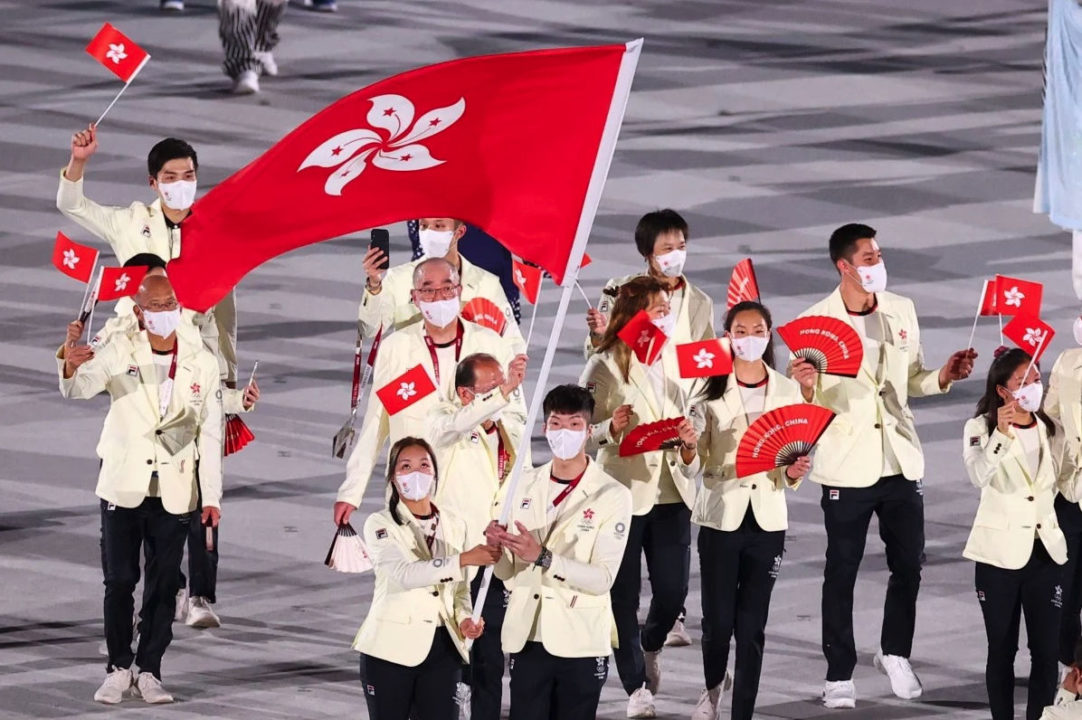For sure, you have felt the Olympic fever last week. Hong Kong has won a historic six medals so far in the 2020 Tokyo Olympics: Edgar Cheung Ka Long’s gold in fencing, Siobhán Haughey’s two silvers in 200m and 100m freestyle swimming,the women’s table tennis team’s bronze, and Grace Lau Mo Sheung‘s bronze in karate.
This brings Hong Kong’s total Olympic medal tally to six. It’s the first time we’ve taken home more than one medal in a single Olympics. This makes it Hong Kong’s most successful Olympic Games since it entered the international competition as a British colony in 1952, and the summer games aren’t even over yet.
The history of three separate Olympic teams
In the analysis of what the Olympic medals mean for Hongkongers, especially this year, we look to the history of the Chinese civil war, colonialism, and attempts of Hong Kong and Taiwan to establish themselves as independent entities.
China’s first official Olympic delegation was sent to the 1932 Los Angeles games. After the 1949 Communist victory and the founding of the People’s Republic of China, 19 of 25 members of the Chinese National Olympic Committee fled to Taiwan.
Taipei withdrew from the 1952 Helsinki Olympics, partly to protest their naming as “China (Formosa)“ in the International Olympic Committee’s (IOC) official invitation. Yet, Taipei continued to be recognized as a legitimate member of the IOC and was invited to join the 1956 Melbourne Games as “Republic of China”.
Hong Kong was recognized as a separate entity from China and Britain by the International Olympic Committee and attended as the independently named “Hong Kong” in 1951.
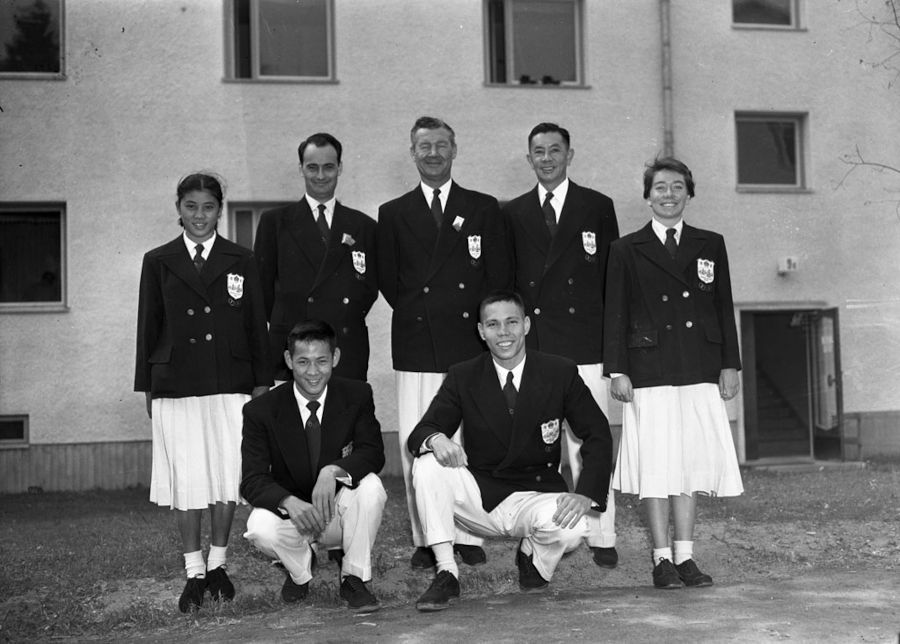
Beijing decried the IOC’s “Two China” policy, especially in response to their acknowledgement of Taiwan as a separate member from China, and boycotted the Olympic Games from 1956 to 1979.
In 1979, as relations between China and Canada/U.S. improved, the IOC held a meeting which resulted in the formation of the Nagoya Resolution. This stipulated that both Beijing and Taipei were to be invited to the 1980 games, and that Taipei would be required to drop its decades-long-held title “Republic of China” to compete under the name “Chinese Taipei” with a new emblem and flag.
Taiwan resisted at first, but conceded to the terms of the agreement in 1981.
Lee Lai-shan, Hong Kong’s first gold medalist in 1996
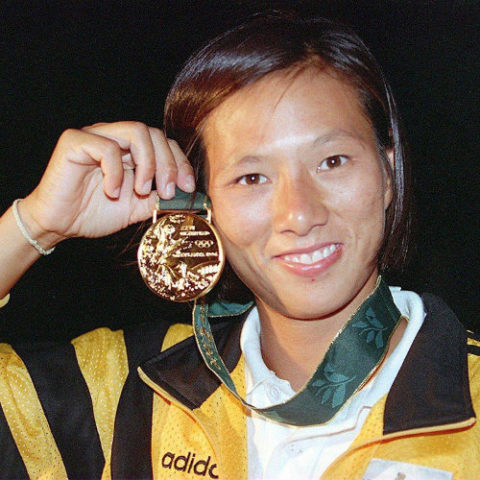
Hong Kong had to wait 44 years to finally get a medal. The navy blue colonial flag was hoisted and the British national anthem played when Cheung Chau native Lee Lai-shan (李麗珊) won the special region’s first ever Olympic medal, a gold for windsurfing at the 1996 Atlanta games.
This was the first and last medal Hong Kong received as team “Hong Kong”. After the British handover, the name was changed to “Hong Kong, China”.
Lee Lai-shan returned to “Home Kong” as a hero.
Medals stoke Hong Kong spirit
As of 2021, Hong Kong has participated in 17 Olympics and won eight medals:
- A gold for sailing in Atlanta 1996 by Lee Lai-shan (李麗珊).
- A silver for doubles table tennis in Athens 2004 by Ko Lai Chak (高禮澤) and Li Ching (李靜).
- A bronze for cycling in London 2012 by Sarah Lee Wai Sze (李慧詩).
- A gold for fencing in Tokyo 2020 by Edgar Cheung Ka-long (張家朗).
- Two silvers for swimming by Siobhán Haughey (何詩蓓), Hong Kong’s first Olympic double medalist.
- A bronze for table tennis by Doo Hoi Kem (杜凱琹), Lee Ho Ching (李皓晴), and Minnie Soo Wai Yam (蘇慧音).
- A bronze for karate by Grace Lau Mo Sheung (劉慕裳).
- Another bronze for cycling by Sarah Lee Wai Sze, after the one in London, bringing a fantastic record of 6 medals in one single Olympic Games, in Tokyo 2020. Historic.
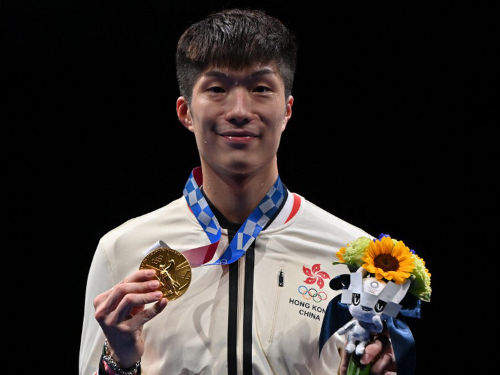
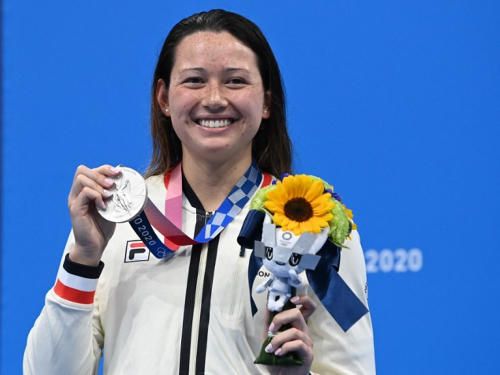
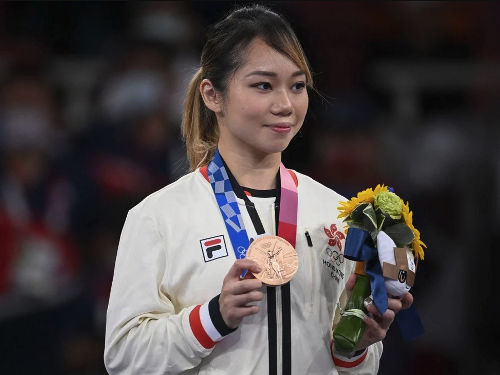
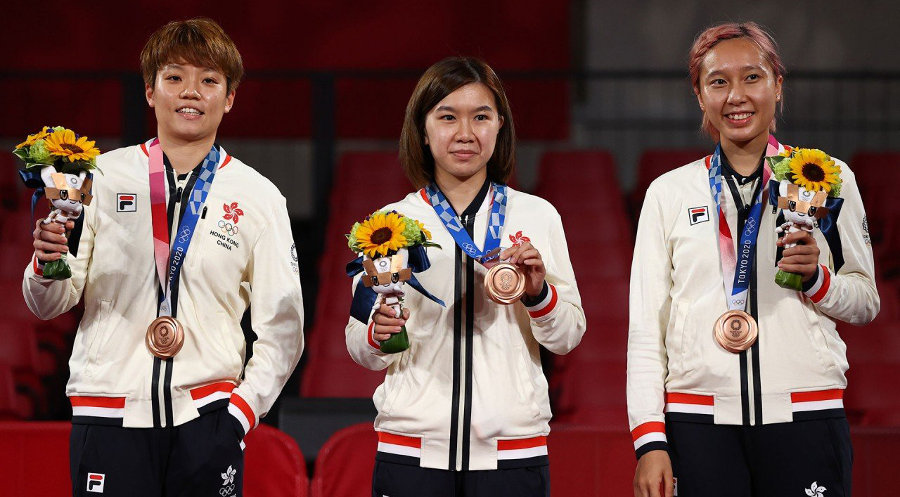
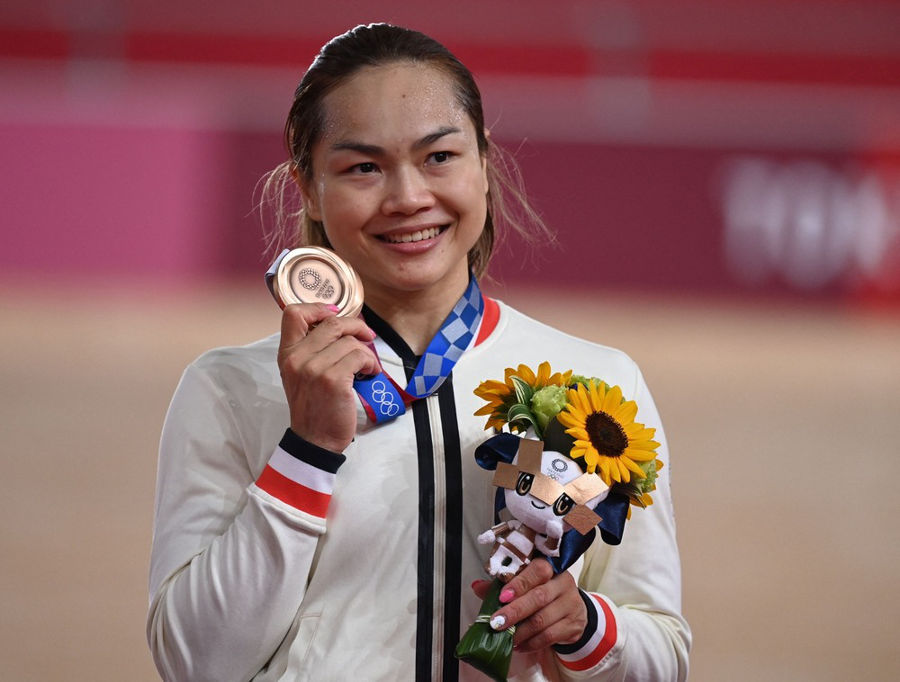
The international multi-sport event has long been the allegorical stage of political interplay. As athletes run, pedal, strike, hurdle, and advance, supporters of each represented nation recognize with enthusiasm the significance of medalling at the Olympics.
For our geographically small, culturally dense city which has been the site of tumultuous shifts in identity and questions of autonomy, the six Tokyo 2020 medals hold a yarn ball of meaning to be untangled.
When Cheung Ka Long stood on the podium’s tallest mount, the Bauhinia flag waving in the air and laying on his chest, his Cantonese rapport with reporters right after his win rung in the ears of viewers.
Hongkongers are watching the homegrown athletes at the Olympics projected onto screens in malls, athletic centres, and on five TV stations broadcasting the games for free (TVB, ViuTV, NowTV, Cable TV, and Fantastic Television), waiting for new heroes to write a new page in Hong Kong’s Olympics history.
Under the surface of the Olympic fever gripping the city, we cheer on these tangible manifestations of a sense of unity and identity, like champions and athletes always value.
💡 More stories on Olympics 💡


